“Alexa, how do I say, ‘Thank God it’s Friday’ in Tamil?” Computational Linguist Prof. Parameswari Krishnamurthy’s research at the IIITH-Language Technology Research Centre is developing a Tamil-Telugu machine translation app and is using Natural Language Processing and areas of linguistic divergence and convergence to build a contrastive grammar and syntactic treebank corpus.
“I’m not a computer science person. I did my B.A in English literature,”’, smiles the IIITH Assistant Professor who always preferred the scientific lens of a computational linguist to the aesthetic outlook of a literature student. This would influence her decision to pursue her M.A in Computational Linguistics from Bharathiar University, followed by M.Phil. and Ph. D in Applied Linguistics from the University of Hyderabad (UoH).
Leveraging her Tamil roots to build an app
“My interest in Tamil was ignited during my research on Indian languages at UoH. Networking at different conferences introduced me to people in the forefront of the computational linguistics domain and that’s how I got to know about IIITH”, she observes. Prior to joining LTRC in November 2022, the researcher was involved in multiple NLP projects for developing machine translation systems and tools for Indian languages. Under Prof. Umamaheshwar Rao’s mentorship, she developed a morphological analyzer as a tool, that would pave the way for her future work in Dravidian languages.
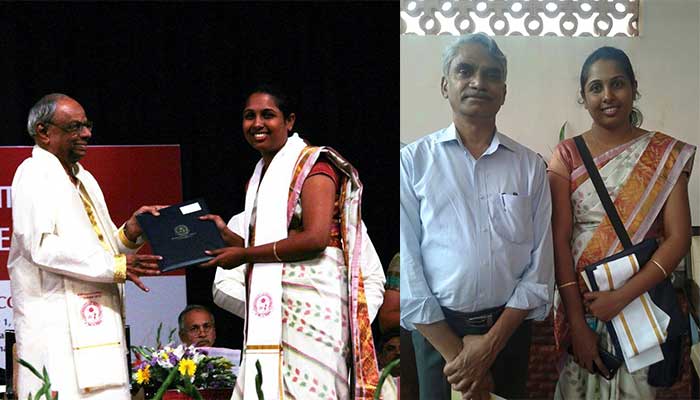
Parameswari’s current research began with computational morphology of Tamil, that in time extended to Telugu, Malayalam and Kannada. “Coming from a strong Tamil language base, I can tell you that the Dravidian word and sentence structure is totally different from English. For instance, a simple Tamil word like ‘Vandaan’ (he had come) has components of verb, gender and tense and is rich in information.
In 2009, her interaction with IIITH -LTRC professors Rajeev Sangal and Dipti Misra Sharma would lead to a successful collaboration, in which Parameswari took the initiative to work on mapping the vocabulary of Telugu to Tamil. “We developed a divergence wheel, a machine translation tool with a numerical differentiator to quantify the differences between Tamil and Telugu. My Ph.D thesis spotlighted these red areas in logical, syntactic, semantic or pragmatic levels in the two languages that belong to the same linguistic family.”
Not a fish out of water at IIITH
“My core interest in computers began at the age of 8, when I sweet-talked my parents into enrolling me into a computer class”, laughs the humanities student who was labelled a computer freak during her Masters tenure. “In my spare time, I learnt about programming, C, Python, Perl etc and my interest in coding helped me. At one point, it struck me that my research was not accelerating in pace with changes in machine learning, language models, generating AI etc. I already had a longstanding association with IIITH and that’s when I took the leap to join the research-oriented institute. What is wonderful about IIITH is that it offers opportunities for people like me, from a non-technical background, to work with them”.
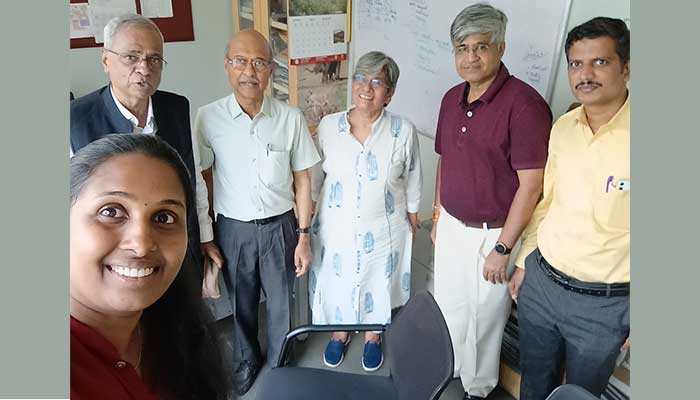
Though her primary work is in the realm of fundamental research, Parameswari has ongoing consultations with a few startups incubated at IIITH, including one on building a language tool on the lines of Grammarly. “My most memorable and challenging work is my current research in machine translation, mapping Telugu and Tamil. I gave myself 6 months to read, write and converse in Telugu and it has been a series of hilarious moments for my co-researchers”, she laughs. Parameswari has designed electives on linguistic data modeling, convergence and on divergence in Indian languages, a unique course that is not offered elsewhere.
For the last 6 years, the researcher has been working on a language machine translation project for MeitY and on Bhashini with the Government of Tamil Nadu, building discourse in Dravidian to Dravidian language translation. She has ongoing collaborations with the Tamil Virtual Academy on syntactic parser, shallow parser tools and establishing their language technology centers and with the Indian Knowledge System in building Sanskrit-Telugu and Sanskrit-Marathi Machine Translation systems. In international collaborations, she has projects with the University of Jaffna, Sri Lanka and with Uppsala Universitet Sweden, on different frameworks in languages.
Why Tamil?
As one of India’s classical languages, Tamil has a rich literary history. “From a linguistic background, whether it is Tamil or a tribal language, preserving the linguistic legacy and reinforcing the language identity of the land is important. I strongly feel that technology can help us here by building tools to make information and technology available in your own language”. In a multi-lingual country like India, only a small percentage are fluent in English. If a remote agriculturist wants to know about what is happening around the world, he should be able to open a YouTube channel and listen to it in his own language or dialect.
In the course of her research career, she has been the recipient of several Best Paper Awards, attended numerous workshops on speech and language technologies, most notable being the workshop for Dravidian Languages. “I have edited a volume called moḻivādam on different areas on applied linguistics and translation studies”, says the scholar with 15 plus journal publications and 25 plus conference papers.
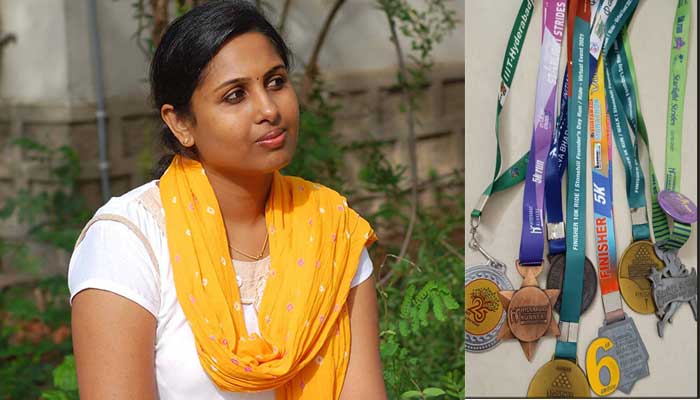
Living life close to Nature on IIITH campus
“I grew up in a small village called Thalavumalai in Erode district of Tamil Nadu, surrounded by coconut trees, sugarcane fields and small lakes. On our family farmlands, we cultivate our own vegetables, coconuts and have our own cattle”. Cloistered in her little slice of heaven, until Parameswari left home to study in a city, she never knew that people struggled to buy milk and vegetables! “My mother was as strong as two men and would drive a tractor and at 62, she still cycles”. Her father, a B.E in Mathematics, grandfather and her family were active proponents of educating girls and motivated her constantly. “I grew up with people of that caliber. By 6, I could cycle and swim. In our growing years, we were empowered with skills like tending to cattle, tying different types of knots on the farm and small survival tips that made our personality well rounded”, observes Parameswari.
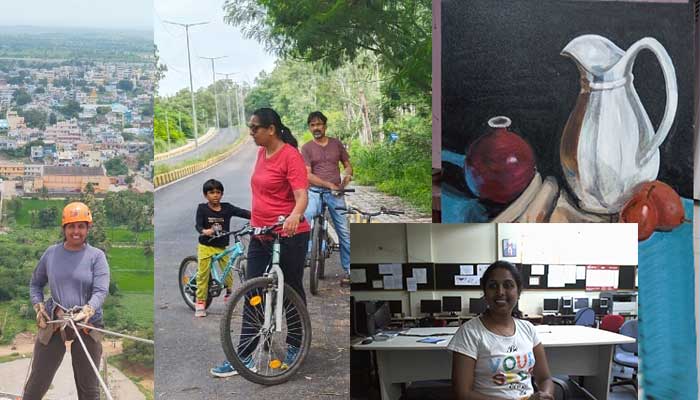
Her schooling happened at different Tamil medium institutions around her village. She remembers Sr. Stella from her village missionary school as a positive influence who introduced her to spoken English in Class 5 and expanded her world vision by taking her to interesting places during vacations and introducing her to visitors from different countries that shaped her to look beyond limits. She completed her B.A in English literature from Navarasam, a college 6 kilometers from her home.
Losing her father during her Ph.D years was a big blow, that altered her plans to go abroad for her post-doctoral work. Soon after, she married Sakthi, a computer science graduate who was working in Sweden as a game developer. Her passion for working in languages would influence his decision to return to India, to help her further her research goals. “He just left everything to be with me here and started freelancing”, says Parameswari who shelved her plans to join Google Japan when they realized that they were going to be parents.
Living on campus has been a big boon for the couple who love being amongst nature with trees and water around them. She ensures that she is home when her twins, Selly and Ponny, return from school, to catch up on the news roundup on how their day went. “I then head back to my Lab to be with my other children, my students. I am a jack of all trades. I love rappelling, trekking, the occasional gym and jogging in the early mornings. I have travelled across India and love anything to do with sun, sea and sand.”, says the scholar who loves road trips to Pondicherry and to her village. “I enjoy A R Rahman’s songs and Indian classical tunes while my husband prefers his mentor Illayaraja and western music”. These days their OTT content is restricted to cartoons.
“IIIT Hyderabad has developed an ecosystem where good teaching and research is happening in parallel. And that’s why I love to be here. I can randomly walk into the research labs of my seniors and colleagues and discuss any topic, share my concerns and they allow me the bandwidth to find my space in the technology institute”.
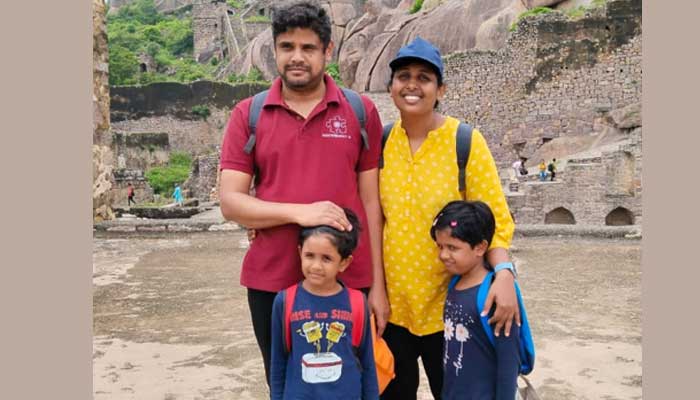
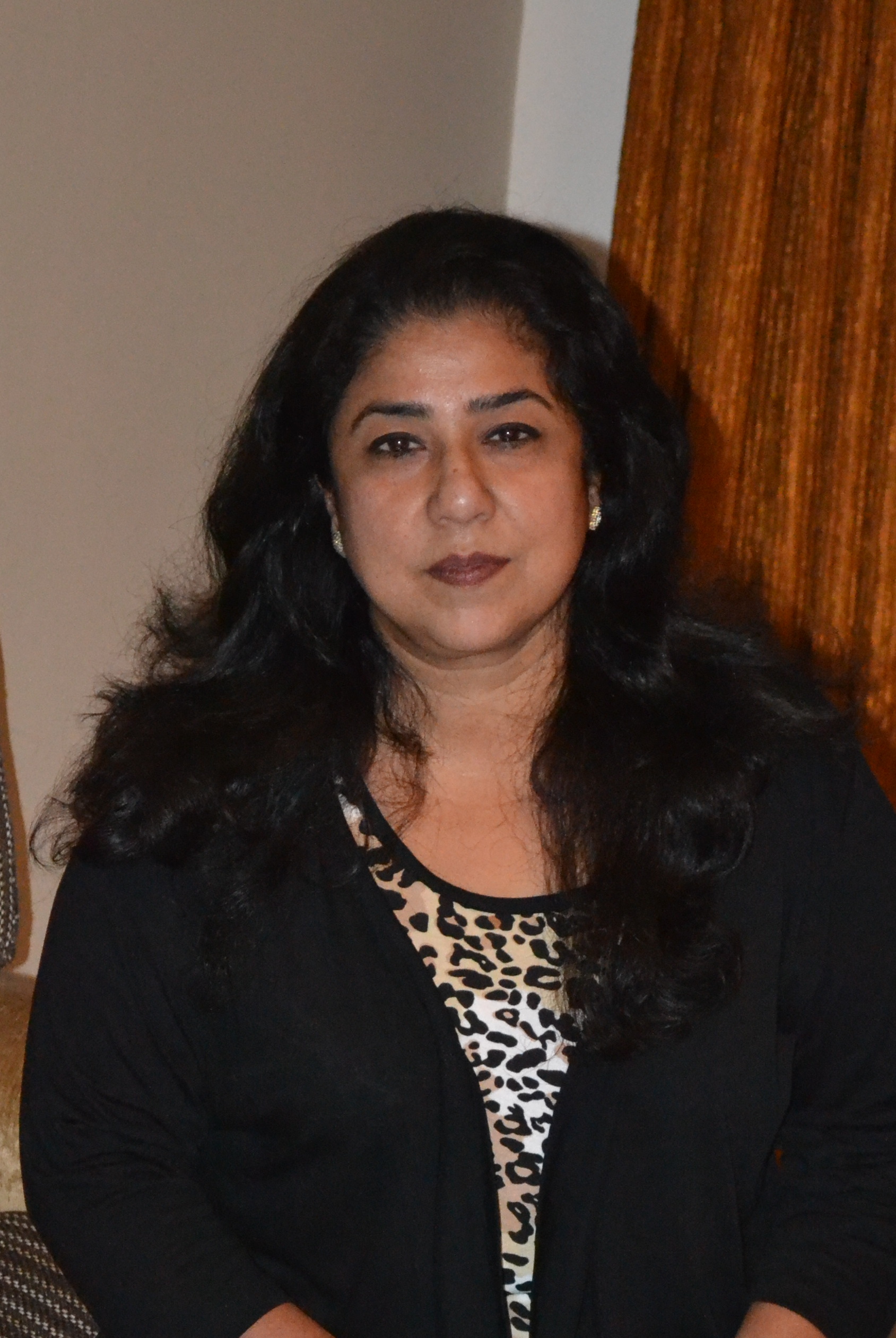

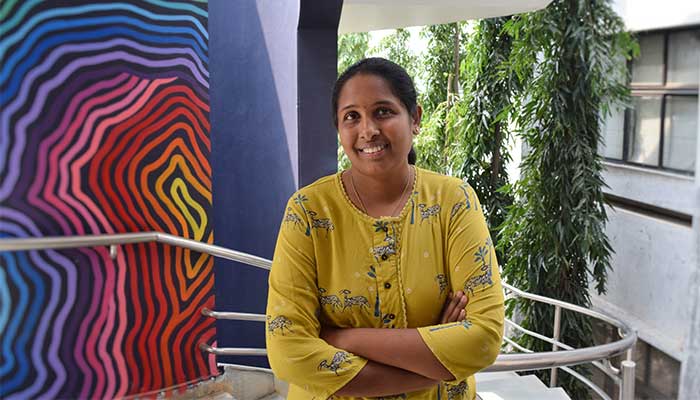
Next post